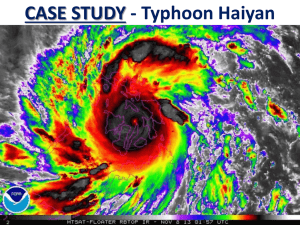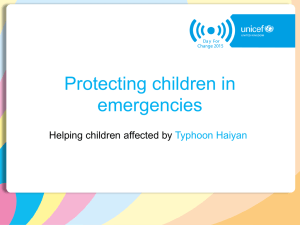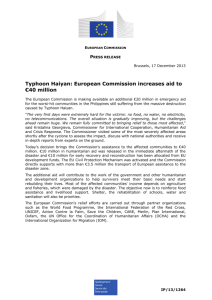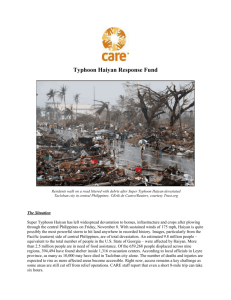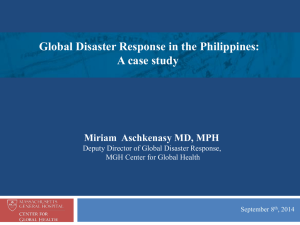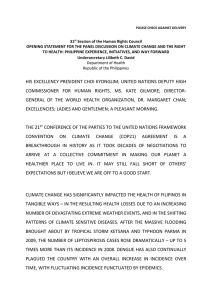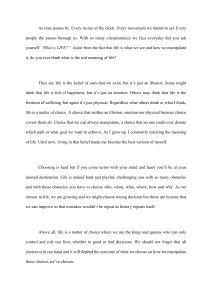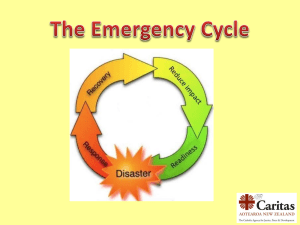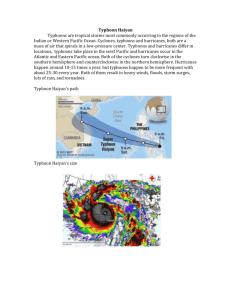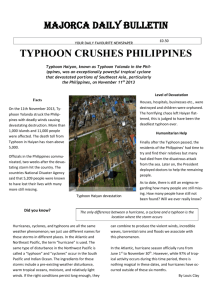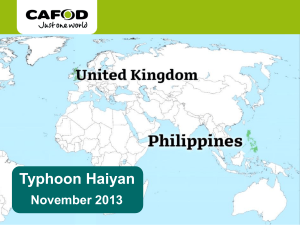SHED response to Typhoon Haiyan
advertisement
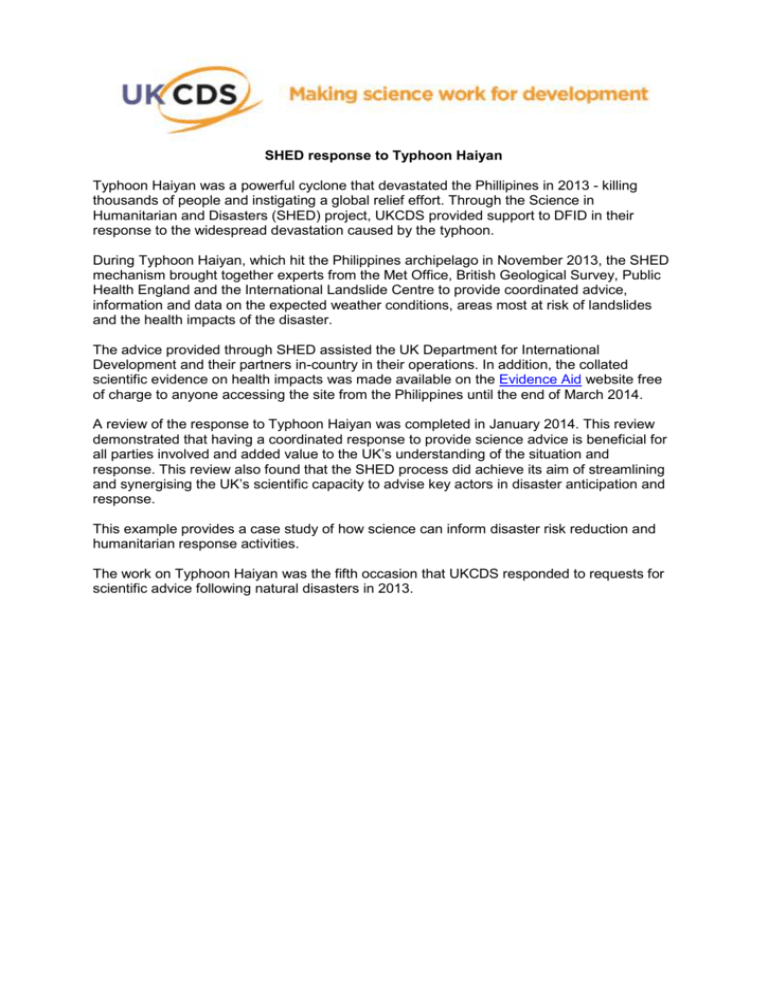
SHED response to Typhoon Haiyan Typhoon Haiyan was a powerful cyclone that devastated the Phillipines in 2013 - killing thousands of people and instigating a global relief effort. Through the Science in Humanitarian and Disasters (SHED) project, UKCDS provided support to DFID in their response to the widespread devastation caused by the typhoon. During Typhoon Haiyan, which hit the Philippines archipelago in November 2013, the SHED mechanism brought together experts from the Met Office, British Geological Survey, Public Health England and the International Landslide Centre to provide coordinated advice, information and data on the expected weather conditions, areas most at risk of landslides and the health impacts of the disaster. The advice provided through SHED assisted the UK Department for International Development and their partners in-country in their operations. In addition, the collated scientific evidence on health impacts was made available on the Evidence Aid website free of charge to anyone accessing the site from the Philippines until the end of March 2014. A review of the response to Typhoon Haiyan was completed in January 2014. This review demonstrated that having a coordinated response to provide science advice is beneficial for all parties involved and added value to the UK’s understanding of the situation and response. This review also found that the SHED process did achieve its aim of streamlining and synergising the UK’s scientific capacity to advise key actors in disaster anticipation and response. This example provides a case study of how science can inform disaster risk reduction and humanitarian response activities. The work on Typhoon Haiyan was the fifth occasion that UKCDS responded to requests for scientific advice following natural disasters in 2013.
